Kelly, Ned (1854-1880), was the most famous of Australia’s bushrangers. Bushrangers were bandits who operated in rural Australia from about 1790 to 1900. Kelly has become a legendary folk hero in Australia. Through the years, some people have considered him to be a cruel and vicious criminal. Others have admired him as a symbol of revolt against authority and injustice.
Early life.
Kelly was born at Beveridge, near Melbourne, in what is now the Australian state of Victoria. His given name was Edward Kelly. His father, John (Red) Kelly, was a native of Ireland. After John Kelly was convicted of pig stealing in 1841, the British government sent him to Van Diemen’s Land (now Tasmania) to serve his sentence. In 1864, the Kelly family moved to Avenel in central Victoria, where John Kelly died in 1866. After his death, the family moved to Greta in northeastern Victoria.
Kelly’s times.
Starting in the post-gold-rush 1860’s, the government of Victoria (then a British colony) settled thousands of farmers, called selectors, on land in Victoria. For many selectors, their plot of land was too small and the soil too poor to make a living. Some selectors stole horses and cattle from their wealthier neighbors, called squatters. Squatters owned large ranches and had great influence in local affairs. The police almost always sided with the squatters. Selectors were often arrested and charged with theft on slight evidence, leading to resentment and distrust. The Kelly family took the selectors’ side against the squatters.
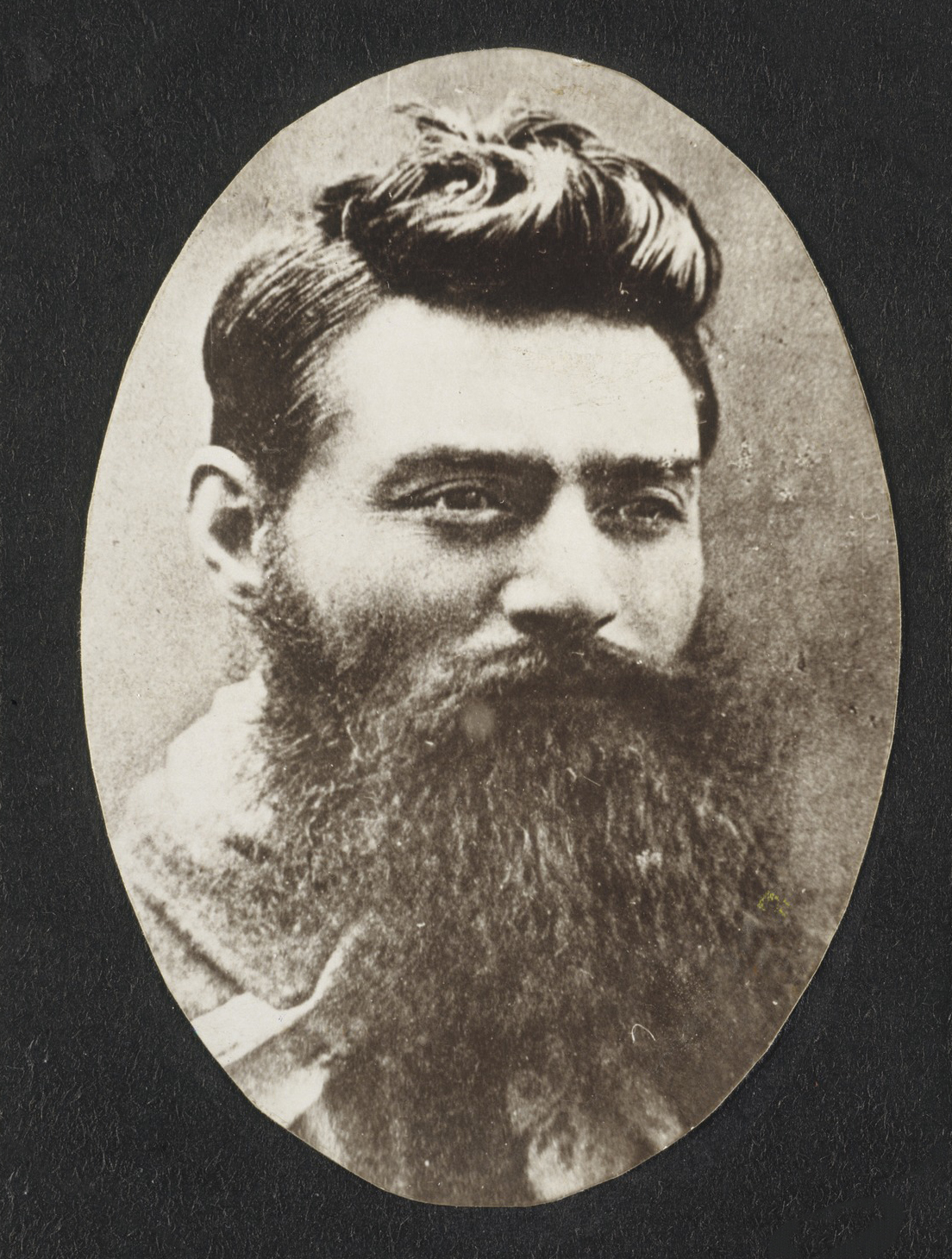
The Kellys and their relatives were considered particularly wild and lawless, even by the rough standards in northeast Victoria during that period. Police suspicion and the family’s activities caused conflicts between the family and the police for almost all of Ned’s life. Ned came to believe that his family would never get fair treatment from the authorities.
Kelly was imprisoned twice before he reached the age of 20. In 1870, he was convicted of assault and sentenced to six months in prison. Shortly after his release in 1871, Kelly was convicted for receiving a stolen horse and sentenced to three years in prison. The police officer who arrested Kelly for this offense brutally beat him with a pistol. After his release in 1874, Kelly led an honest life for three years before turning to horse and cattle theft.
Formation of the Kelly gang.
Kelly became more well-known after an 1878 incident at his family’s house. In April of that year, a policeman named Alexander Fitzpatrick tried to arrest Ned’s brother Dan for horse theft. Fitzpatrick was wounded at the Kelly house. The officer claimed that Ned shot him. But the Kellys said Fitzpatrick was injured in a scuffle after he insulted the Kellys’ sister. The truth of the incident remains a mystery.
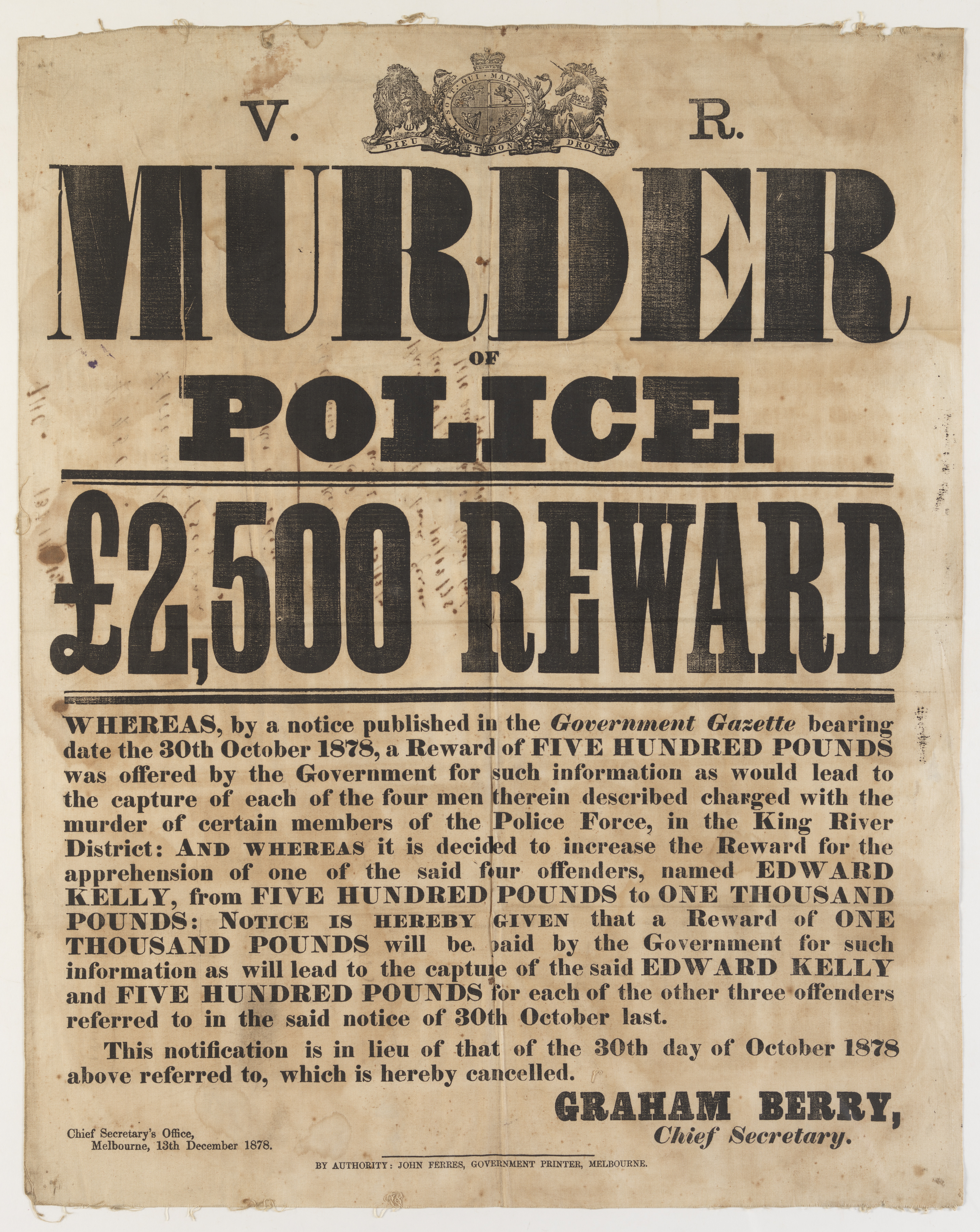
The police arrested Ned and Dan’s mother, Ellen Kelly, and two of her neighbors, charging them with attempted murder. Ned and Dan Kelly had already escaped to the thickly forested Wombat Ranges in northeastern Victoria, and the government offered a reward for their capture. Ellen Kelly and her neighbors were convicted and sentenced to several years in prison. Ned protested that his mother had been unfairly sentenced. He offered to surrender himself and Dan if she were released. The authorities rejected this request.
Two friends, Steve Hart and Joe Byrne, joined Ned and Dan in their mountain hideout. Later in 1878, the police sent two patrols to capture or kill the brothers. But Ned and his companions surprised one of the patrols and killed three police officers in a shootout. The Kellys, Hart, and Byrne were declared outlaws by the government and quickly won fame as the Kelly gang.
Raids of the Kelly gang.
In December 1878, the gang robbed a bank in Euroa, Victoria. They crossed the border into New South Wales two months later and raided the town of Jerilderie. There, they locked up the two local police officers and robbed another bank. Ned Kelly tried unsuccessfully to find the editor of the local newspaper. He wanted the editor to print a document of about 8,000 words, now known as the Jerilderie Letter, in which he explained his actions and complained of injustice. The letter indicated that the gang’s criminal activity might become a rebellion.
Kelly’s last stand.
The Kelly gang eluded police for more than a year after the Jerilderie raid. Early in 1880, they stole or received moldboards (plow blades) from farms in the region and shaped them into helmets and suits of armor. The armor covered everything except their arms and legs, and it was part of a plan to establish a Republic of Northeastern Victoria.
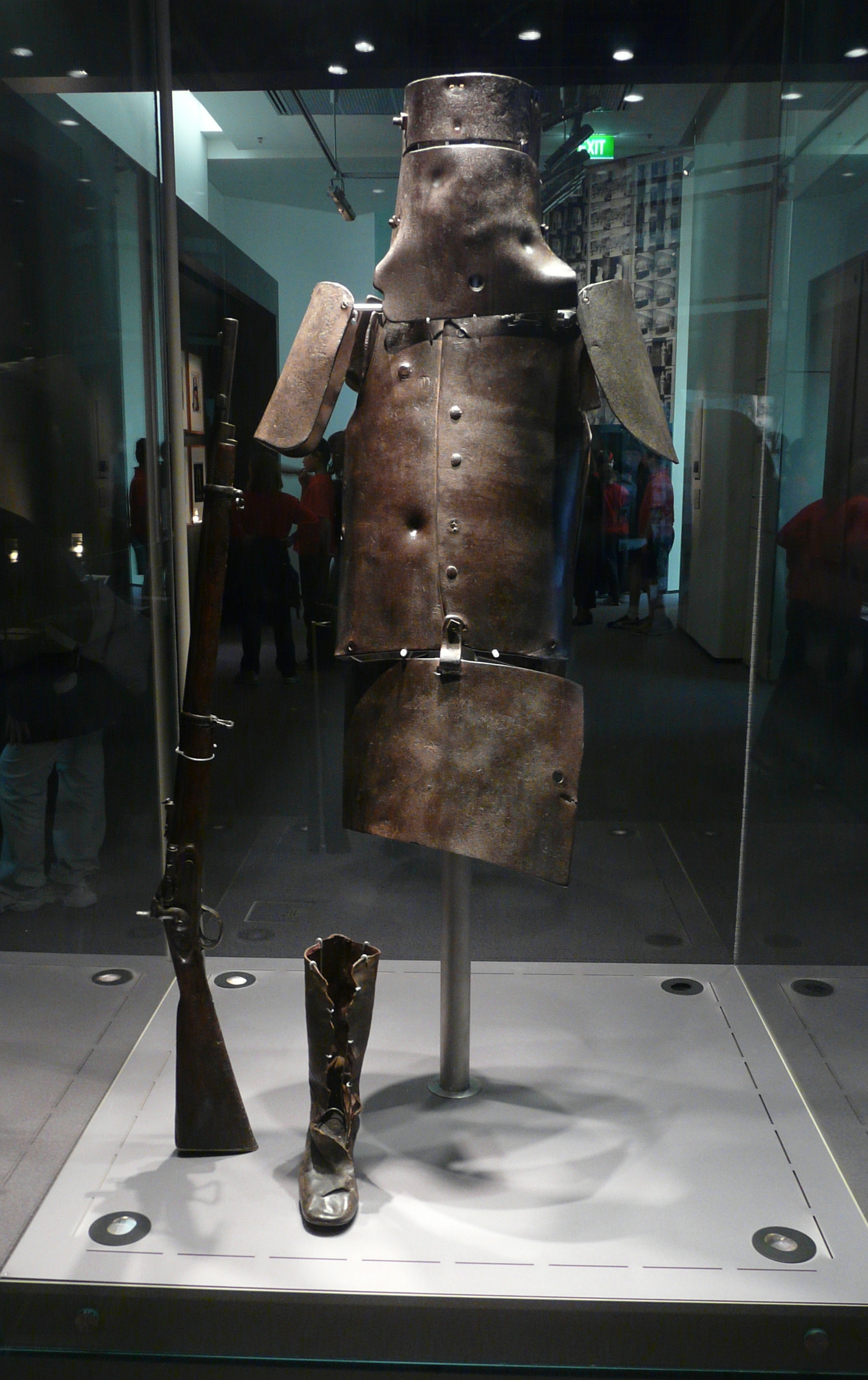
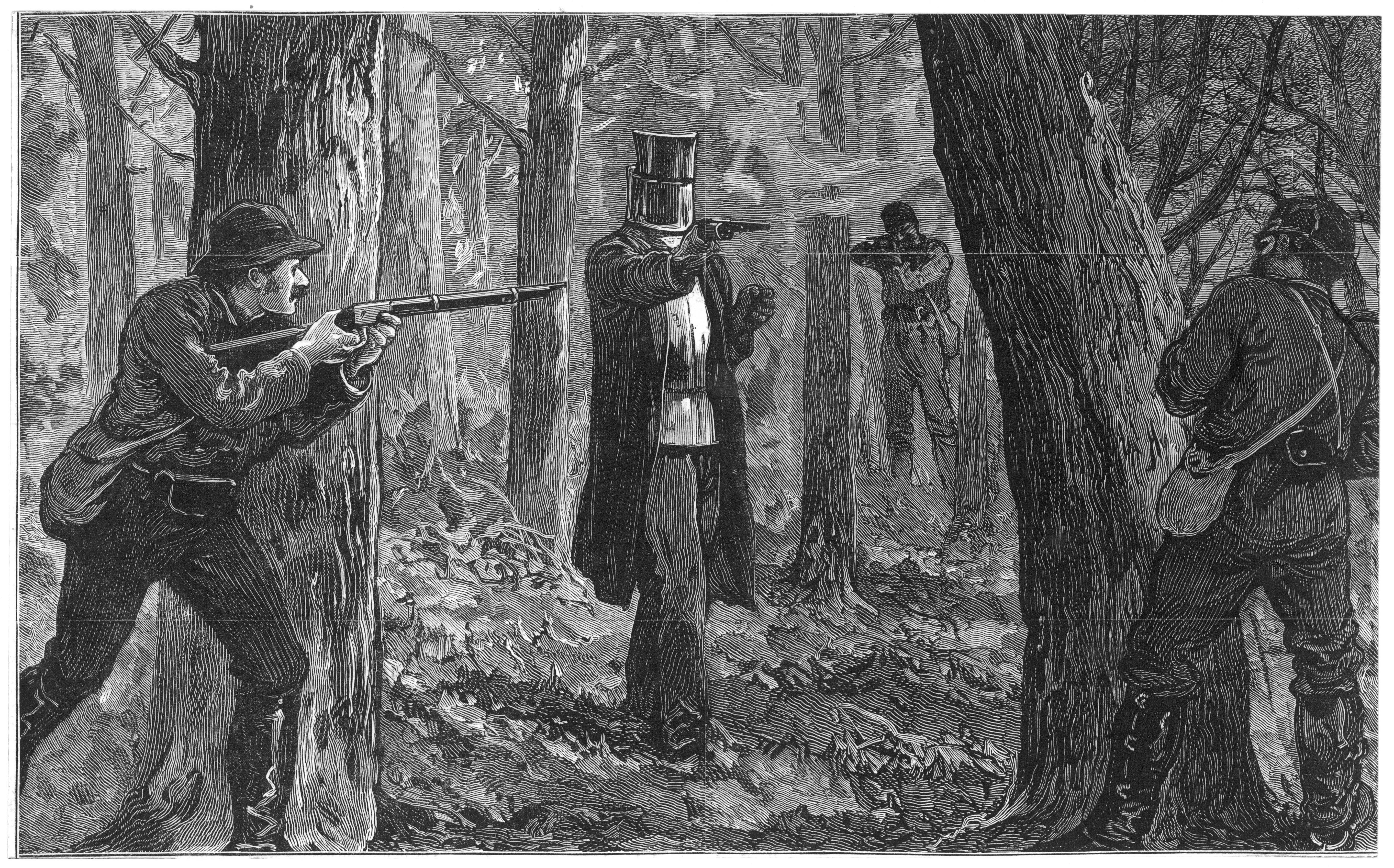
In June 1880, the gang took over the railway village of Glenrowan and held townsfolk captive in an inn. A police force attacked the inn, and the gunfight became a siege. It lasted 12 hours and eventually involved more than 50 officers. During the siege, Dan Kelly, Hart, and Byrne were killed. Though badly wounded, Ned Kelly briefly escaped. But the police captured Ned in a gun battle after he returned, wearing his armor, to attempt to rescue his companions.
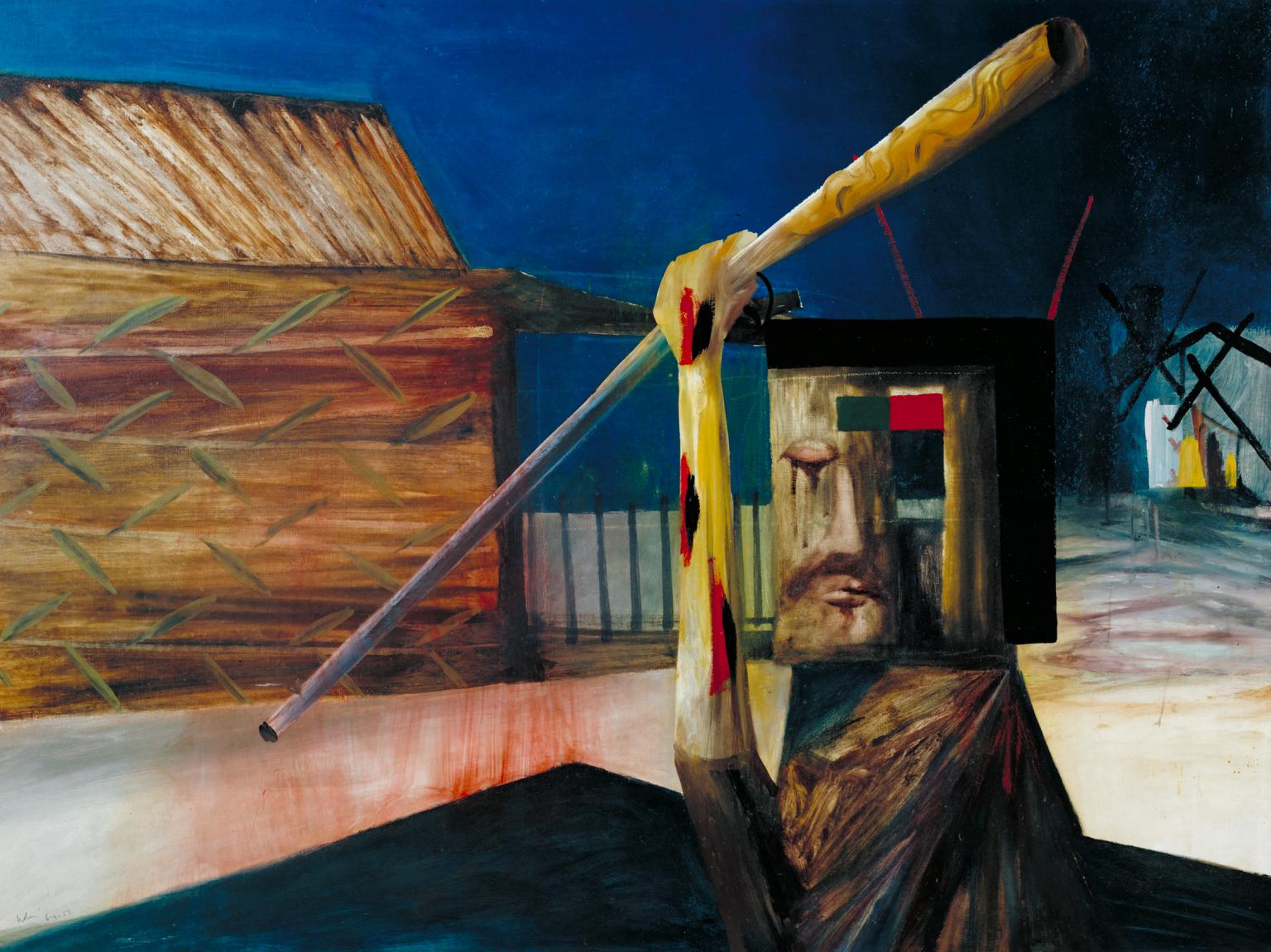
Kelly stood trial for murder in October 1880. He was found guilty and hanged in the Melbourne jail on Nov. 11, 1880, despite a massive public campaign to spare his life.
Kelly’s remains were buried in a mass grave at the Melbourne jail. When that jail closed in 1929, they were exhumed and reburied in another mass grave. In 2009, experts exhumed all of the bones in the mass grave. In 2011, they were able to identify all of Kelly’s remains except for his head by comparing the exhumed bones with DNA supplied by one of Kelly’s descendants. Officials gave the remains to Kelly’s descendants, who buried them in a private ceremony in January 2013.
